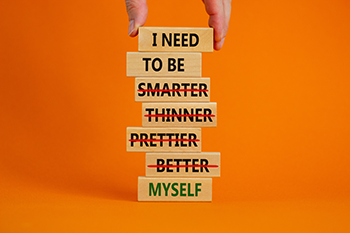By Shawn McAndrew
 How often are we accepting of circumstances or guidance? Humans don’t necessarily want to be told what to do, or how to think or act. Yet we are bombarded with so much information that tries to lead us one way or another. Advertisements, teachings, advisors, confidantes – we have so many people in our lives telling us how to be.
How often are we accepting of circumstances or guidance? Humans don’t necessarily want to be told what to do, or how to think or act. Yet we are bombarded with so much information that tries to lead us one way or another. Advertisements, teachings, advisors, confidantes – we have so many people in our lives telling us how to be.
What’s in Our Best Interest
We also have childhood disciplines and directions that we learned from our parents and adult authority figures. Some of these we accepted, some of them we rejected or rebelled against. All of them, in whatever form, helped to shape who we are today. Now we get to sort through what’s in our best interest, and what we can leave behind.
Feeling accepting can be viewed from the lens of knowing that we are not always in control, and we don’t always know what’s best for us. Sometimes when I perceive a wrong, I take up the fight mode. Where does this come from – which parent? And how is it affecting me in my life today? Sometimes it’s okay to take up the fight mode, as long as it is in proportion to the situation.
Left Road vs. Right Road
At times when I overreact, if I can step back, understand where my reaction is coming from, and disconnect from it, I can be more accepting of what is happening. Assumption, blame, and making up stories come from the left road. Curiosity comes from the right road.
Left Road: Why did that person just do me wrong? Was that their intention – to do me harm? Or were they just going about their life and I stumbled into a pitfall of “that person is out to make me miserable”?
Right Road: What just happened here? Was I in the wrong place at the wrong time? Is that person having a bad day and this is not about me? Is this a problem or an inconvenience? (On the Hoffman Practices page, you can find the Left Road/Right Road Practice to review.)
Benefits of Feeling Accepting
Looking at a situation from the perspective that someone is just being a human is not giving in to what we perceive as being wronged; it is allowing ourselves and the other person the benefit of a clean slate. We don’t have to heap our negative patterns onto someone who may have just said or done something from a completely different point of view.
Holding on to how we think we were wronged does no one any good. I remember how my father used to hold grudges. He was worse than your average baseball fan – he could remember who “did him wrong” 20, 30, 40 years later. You can bet a paycheck that the other person would have no idea of that grudge, nor would they probably remember the incident. How long do we carry this load on our shoulders? How is it running our lives today?
Choice Is Part of Feeling Accepting
When we can start to let go and look at situations from a place of curiosity, we can start to accept others as human beings who have faults, just like ourselves. Acceptance is beneficial in many ways. We don’t have control over most things in life (other than our actions/reactions), which can help us make more informed choices. We can step away from having to be right all the time, or carrying grudges for years on end. That is freedom – of choice, life, and being.